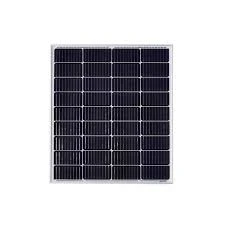benefits of solar panels
The Benefits of Solar Panels
In an age where climate change has become a pressing global issue, the need for sustainable energy solutions has never been more critical. Among the most promising options available today is solar energy, harnessed through solar panels. As technology has evolved, the installation of solar panels has become more widespread, and many households and businesses are turning to this energy source. This article explores the numerous benefits of solar panels, emphasizing their role in environmental sustainability, financial savings, energy independence, and increased property value.
Environmental Sustainability
One of the most significant advantages of solar panels is their positive impact on the environment. Solar energy is a renewable resource, meaning it is abundant and inexhaustible. By using solar panels, we can reduce our reliance on fossil fuels, which are the primary contributors to greenhouse gas emissions and air pollution. Each kilowatt-hour of electricity generated from solar panels reduces carbon dioxide emissions by approximately 1.5 pounds. With every panel installed, individuals and businesses play a crucial role in combating climate change, preserving the planet for future generations, and promoting a healthier ecosystem.
Financial Savings
Another compelling reason to invest in solar energy is the potential for substantial financial savings. While the initial cost of installing solar panels can be significant, various incentives and financial programs can offset these expenses. For instance, many governments provide tax credits, grants, and rebates to encourage solar adoption. Additionally, the cost of solar technology has been steadily declining, making it more accessible to a wider range of consumers.
In the long run, solar panels can lead to significant savings on electricity bills. By generating their own power, homeowners can reduce or even eliminate their reliance on grid electricity. In many regions, net metering programs allow solar users to sell excess energy back to the grid, further enhancing their financial returns. Over time, the payback period for solar investments can be relatively short, and many owners see a return on investment within 5 to 10 years, leading to decades of free power thereafter.
Energy Independence
benefits of solar panels

Solar panels also contribute to energy independence. As the world grapples with the fluctuations of fossil fuel prices and geopolitical instability, a localized energy source like solar provides consumers with more control. By generating electricity on-site, homeowners and businesses can shield themselves from price volatility associated with traditional energy sources. Furthermore, solar energy can reduce reliance on foreign energy imports, promoting national energy security and resilience.
In addition, advancements in battery storage technologies are making it increasingly feasible for solar users to store excess energy for use during periods of low sunlight or high demand, enabling greater self-sufficiency. This capacity for energy storage allows users to maintain their power supply even during outages or emergencies, ensuring a continued flow of electricity regardless of grid conditions.
Increase in Property Value
Investing in solar panels can also increase the value of a property. Numerous studies have shown that homes equipped with solar energy systems tend to sell for a premium compared to those without. Buyers are increasingly looking for energy-efficient homes that promise lower utility costs and a reduced environmental footprint. With the growing awareness of sustainability, properties equipped with solar panels signal to potential buyers that they are making a responsible and long-term investment.
Additionally, solar panels can make properties more desirable in a competitive real estate market. As consumers become more environmentally conscious, homes with renewable energy systems are more likely to attract buyers who prioritize sustainability.
Conclusion
The adoption of solar panels presents an array of benefits that extend far beyond merely producing electricity. From promoting environmental sustainability to offering financial savings, enhancing energy independence, and increasing property values, the advantages are compelling and multifaceted. As technology continues to advance and the world shifts toward more sustainable energy practices, solar energy will undoubtedly play an integral role in our future energy landscape. Individuals, businesses, and governments must embrace this transition and take bold steps towards harnessing the power of the sun — not only for their benefit but for the benefit of the entire planet. Embracing solar energy today paves the way for a cleaner, greener, and more sustainable tomorrow.
-
Unlocking Energy Freedom with the Off Grid Solar InverterNewsJun.06,2025
-
Unlock More Solar Power with a High-Efficiency Bifacial Solar PanelNewsJun.06,2025
-
Power Your Future with High-Efficiency Monocrystalline Solar PanelsNewsJun.06,2025
-
Next-Gen Solar Power Starts with Micro Solar InvertersNewsJun.06,2025
-
Harnessing Peak Efficiency with the On Grid Solar InverterNewsJun.06,2025
-
Discover Unmatched Efficiency with the Latest String Solar InverterNewsJun.06,2025







